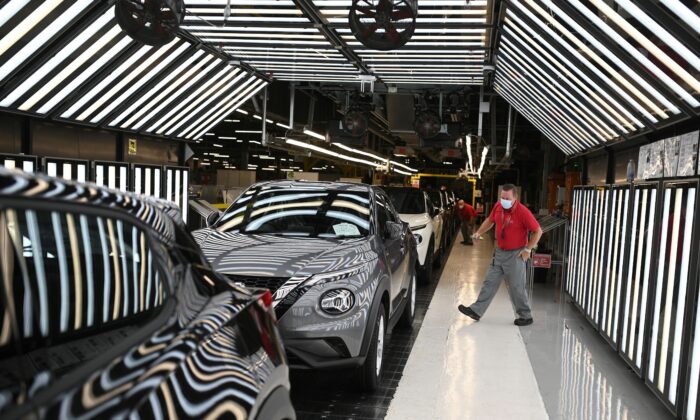UK Car Manufacturers Struggle with Transition to Zero-Emissions as Production Slows in 2024
Research suggests that by 2030, China’s car brands could dominate up to a quarter of the UK market as the petrol and diesel ban takes effect.
UK car manufacturers are facing “growing pains” in transitioning to zero-emission vehicles (ZEVs), as production volumes dropped in 2024.
The latest figures by the Society of Motor Manufacturers & Traders (SMMT) show that the sector produced less than 1 million cars and commercial vehicles last year.
Factories produced 779,584 cars and 125,649 commercial vehicles, representing an 11.8 percent decrease from 2023.
SMMT Chief Executive Mike Hawes attributes the drop in production volumes to geopolitical tensions, trade issues, and pressures related to the ZEV transition.
He stated, “UK manufacturers are investing billions to transform factories for electric vehicle production, leading to expected growing pains.”
Under ZEV transition plans, petrol or diesel cars will be phased out by 2030, with all new cars and vans needing to be 100 percent zero-emission by 2035.
Transport Secretary Heidi Alexander believes this policy will provide clarity for manufacturers and boost consumer confidence in EV adoption.
Despite challenges in transitioning to EV production, including retooling factories, the sector is continuously evolving.
While there was a 20.4 percent decline in battery electric, plug-in hybrid, and hybrid vehicles compared to 2023, they still accounted for over 35 percent of the total production.
Financial Constraints
In 2024, manufacturers spent over £4 billion on discounts to encourage EV adoption, with private consumers showing a lag in acceptance.
Higher taxes on businesses, led by increased National Insurance contributions, pose additional challenges, especially for the automotive supply chain consisting mainly of small and medium-sized companies.
The SMMT has called for changes in the upcoming spending review to alleviate strain on these firms.
While the temporary decline in EV output growth is expected, its resolution relies on government investments, such as the announced £2.3 billion funding backing UK manufacturers and consumers.
UK Plants
In 2024, domestic car production decreased by 8 percent, while exports declined by 15.5 percent.
Nissan’s output in Sunderland dropped by 13.2 percent, Toyota’s Burnaston plant saw a 19.8 percent decline, and the BMW Group’s Oxford Plant recorded a 40.1 percent fall.
The closure of Vauxhall and Citroen owner Stellantis’ Luton factory puts more than 1,100 jobs at risk, along with other cuts across the UK announced by Ford.
Competition From China
Exports of UK cars to the EU and China declined by 24.3 and 21.8 percent respectively in 2024.
Researchers predict that Chinese manufacturers may increase their market share in Britain, given the tariff-free status compared to the EU.
Auto Trader research shows that Chinese EV brands are gaining popularity among younger UK consumers, with brands like BYD, GWM, and Omoda showing promise.
By 2030, Chinese brands could potentially dominate up to 25 percent of the UK market, according to the research.
However, concerns about data security, quality, and pricing among older consumers remain hindrances to full acceptance of Chinese brands.
The SMMT projects an increase in UK car production over the next five years, surpassing 1.1 million units by 2030.



